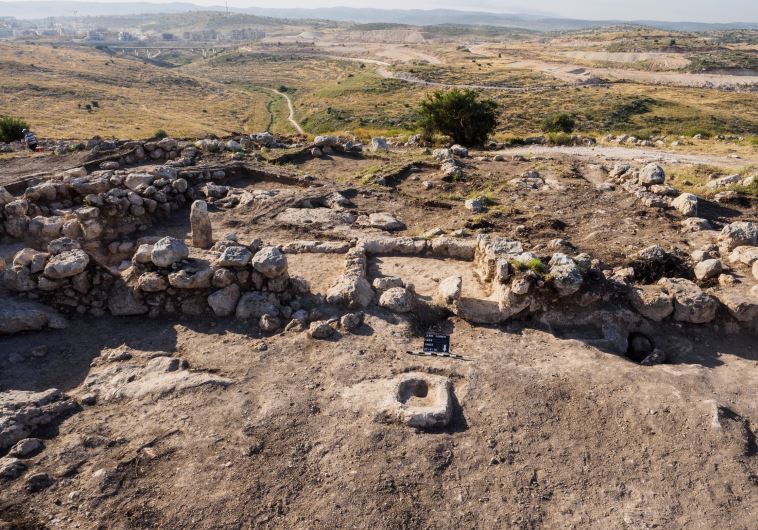Palestinian Authority demolishing Hasmonean dynasty fortress - report
The Hasmonean dynasty, descendants of the Maccabee family, ruled Judea and surrounding areas from 141-37 BCE, during classical antiquity.
 Aerial view of the Hasmonean estate house near Modi'in.(photo credit: ANTIQUITIES AUTHORITY)
Aerial view of the Hasmonean estate house near Modi'in.(photo credit: ANTIQUITIES AUTHORITY)